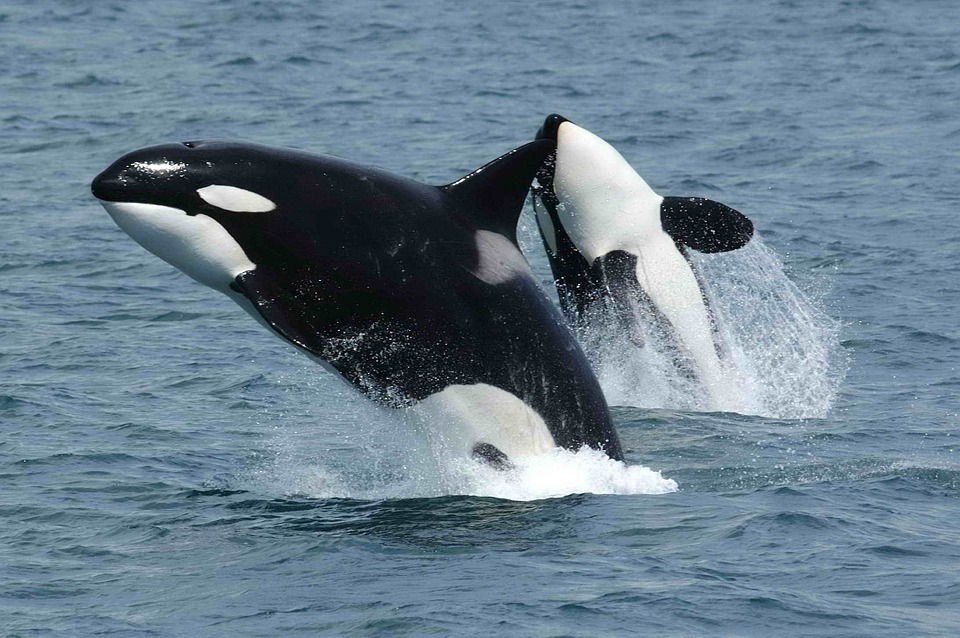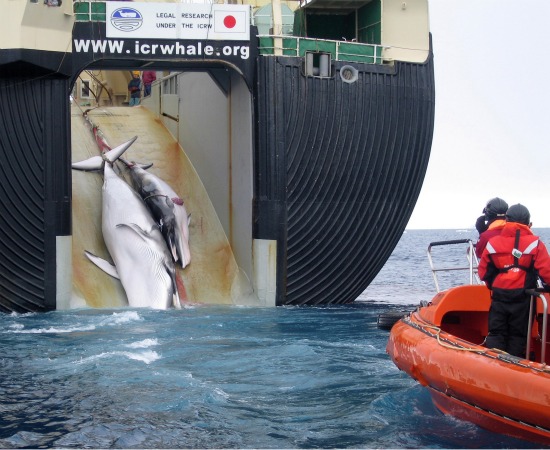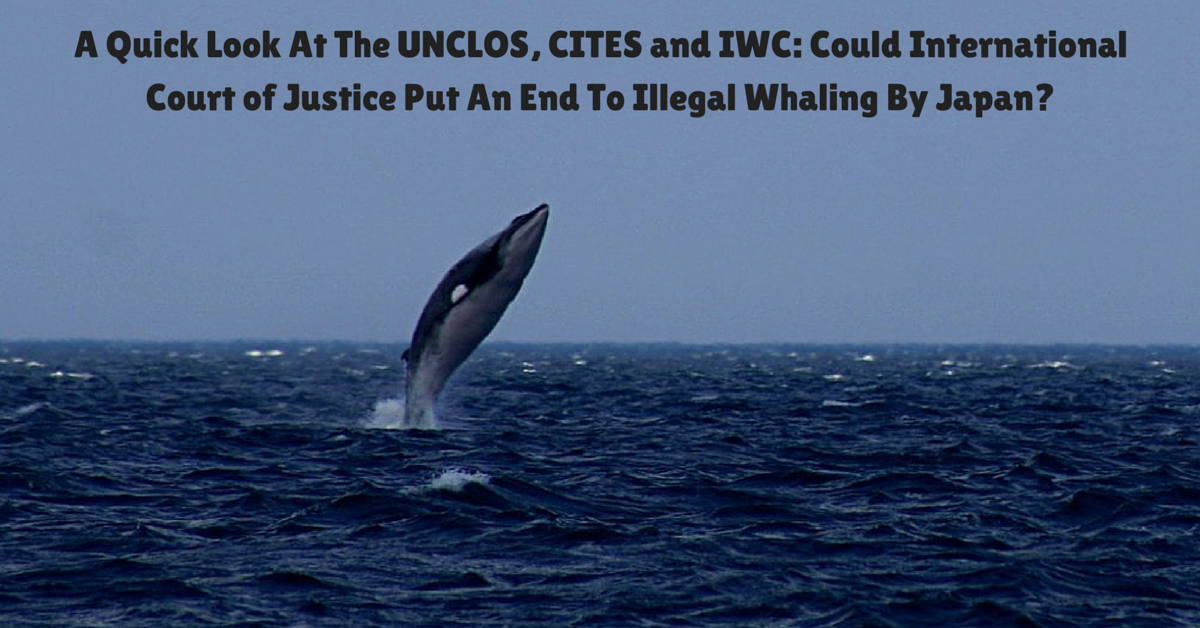I wrote this article many years back on A First Taste of Law. Things have hardly changed and hence republishing this.
Is Public International Law any law at all? This staple debate from PIL and jurisprudence classes started since the time of Austin the positivist, may find a contemporary answer one of these days.
The elaborate legal framework has been created to protect whales by the international community. There is even an International Whaling Commission in place to address disputes over illegal whaling. However, nothing seems to work – whales are poached year after year with impunity.
So what is wrong? Here are the options:
a) the law is bad
b) enforcement
c) lack of goodwill
d) all of these
Pick your choice. I am not going to break my head over this chicken and egg debate. However, I came across a piece of news I thought may be the beginning of the end in the illegal trade in whale products, and the poaching of this valuable, rare and beautiful mammal.
Japan is the biggest poacher of whales. Government of Japan issues permits to poach up to 1000 whales a year in the name of scientific research on whales. This is one of the legal juggleries that has been going on for years now despite a lot of protests. These days the protesters are even clashing with the ships poaching whales in the high seas.

In any case, this time Australia, supported on principle by EU and US, has issued an ultimatum to Japan, stating that they will take Japan to International Court of Justice in Hague if they fail to stop illegal poaching and trading in whale meat under the garb of research. Japan has called this move on the part of Australia ‘unfortunate’ and said that their whaling activity is ‘legal’. Seems they are prepared to fight the case in International Court of Justice if need be.
For all those who want to see an end to this government sponsored absolutely unnecessary poaching of a valuable resource that in all senses is inherited by the whole mankind and are not restricted to the territory of one country, these developments are welcome. For one, even if Australia fails in its legal campaign in the ICJ on some technical ground or the other, this is going to generate unprecedented media attention and public opinion against whaling industry and Japanese governments policy with respect to whaling.
Secondly, it is highly unlikely that Australia will not succeed. To explain this statement, I should give a brief account of the international legal regime governing whaling.

International Whaling Convention
The International Whaling Convention (IWC) was established to oversee the management of the whaling industry worldwide in 1946, right after World War II when the United nations was still in its formative stage, in response to the rapid decline in the population of whales from whaling. In 1986, the IWC instituted an indefinite ban on commercial whaling. This ban is still in effect, with certain exceptions. Norway have declared themselves exempt from the ban. No customary international law against whaling, if any, could be used against them either, as they would qualify as a persistent objector.
Japan does not claim any right to commercial whale trading and would not qualify for an exemption as Norway does. Countries such as Norway and Iceland sometimes even interpret the moratorium on whaling as a ban on unsustainable commercial whaling, as opposed to on commercial whaling itself. Japan has not been resorting to this argument so far, rather they have asserted that their whaling is for scientific research, and this is unregulated. Nevertheless, it will be very difficult for Japan to establish in court that their whaling activity is bona fide research and not commercial.
Australia has promised to present its case against Japan in the IWC very soon. What line of arguments (I mean substantial, not jurisdictional) both parties are likely to take in front of ICJ would be more or less clear at that stage itself.
Convention on International Trade in Endangered Species of Wild Fauna and Flora (CITES)
CITES is an international treaty that provides for protection of endangered wild animals and plant species and regulates international trade of the same. It is designed to promote the conservation of endangered species while allowing trade in certain wildlife. There are three categories of protection under the treaty. Species listed in Appendix I are threatened with extinction and would be affected by trade, therefore the commercial trade is strictly prohibited. All species of the ‘great whales’ are listed on Appendix I.
However, CITES provides for exemption as far as scientific research is concerned, and Japan will possibly benefit from the same especially because it made reservations at the time of signing the treaty with respect to whaling. Also, Japan’s whaling activity is not meant for international trade but domestic consumption. It may be difficult to use this Convention against Japan. This is so because CITES as a framework works better for protection of domestic species that live within the confines of a country, and not whales that can not be said to be living in any particular country but in international waters. As Japan primarily consumes whale products domestically and does not engage in international trade, it is difficult to prevent them under CITES.
United Nations Convention on the Law of the Sea (UNCLOS)
UNCLOS imposes a duty on nations that have signed this treaty (Including Japan) to conserve marine mammals and to follow the International Whaling Convention’s guidelines (even if they are not signatory). The duty imposed by UNCLOS is thought to be stronger than the obligations imposed under the International Whaling Convention.
Articles 87 and 116 of UNCLOS affirm that the nationals of all states are free to take living resources on the high seas, subject to their treaty obligations and to UNCLOS stipulations. However, protection of mammals is given a different status altogether in UNCLOS and whaling, therefore, can not be compared to fishing. In Article 65 of UNCLOS, it is envisaged that to protect marine mammals, coastal states and international organisations may prohibit, restrict or regulate catching of marine mammals, even in the high sea (Article 120).
The prohibition and resolutions of the IWC, therefore, have to be seen in light of these provisions. Also, historically Japan has considered IWC as the appropriate body for regulating whaling, which can be shown from records of earlier negotiations, sealing any way of arguing IWC is not the appropriate body under Article 65 of UNCLOS.
Conclusion: fate of mala fide scientific research
It seems that the case, if considered on merits, is going to turn on the point whether Japans whaling activity is free from all regulations as soon as they label it as scientific, especially when it is being alleged and widely challenged (and as asserted by Greenpeace, also documented) as mala fide. If ICJ agrees to look into the activities in order to determine whether it can be justifiably called scientific research, Japan will have a tough time proving their case.As the legal blog Opinio Juris observes, Japan has not been a party to a case in ICJ ever, till now – and its reaction over being taken to ICJ over whaling will be very interesting to watch.
 Serato DJ Crack 2025Serato DJ PRO Crack
Serato DJ Crack 2025Serato DJ PRO Crack










 Allow notifications
Allow notifications


